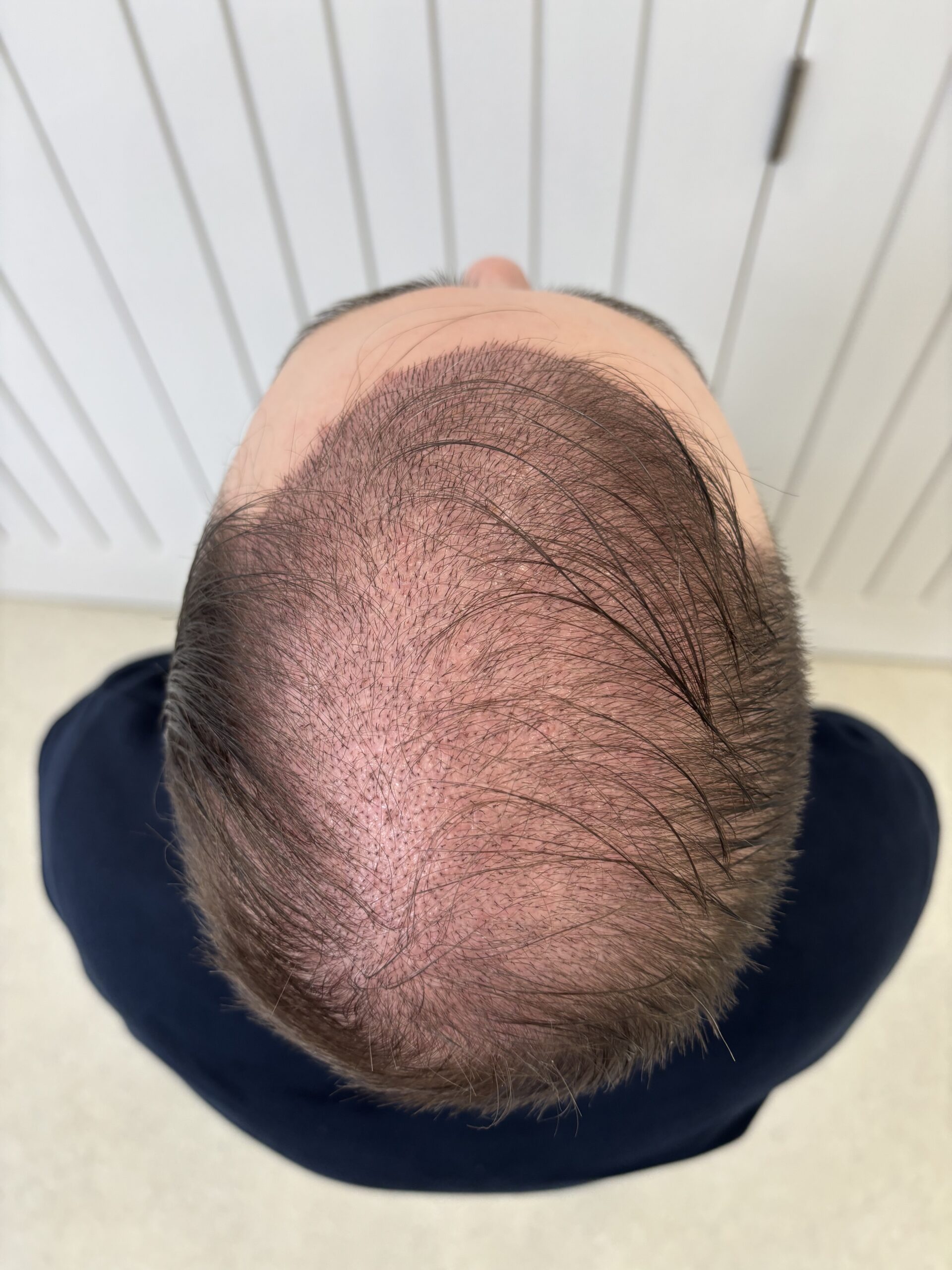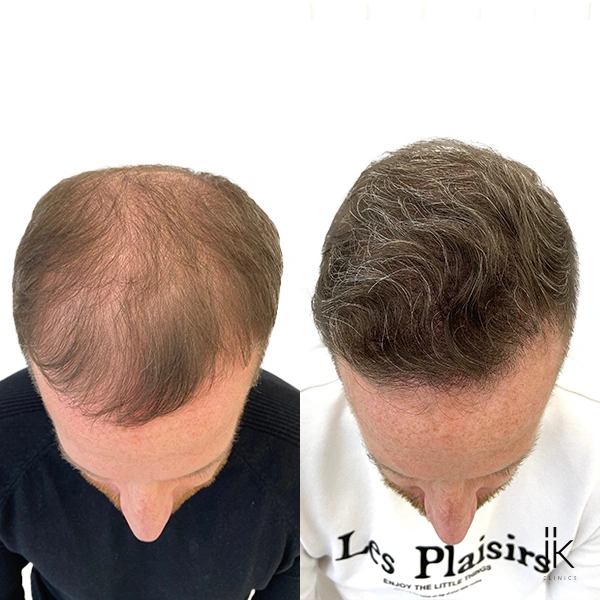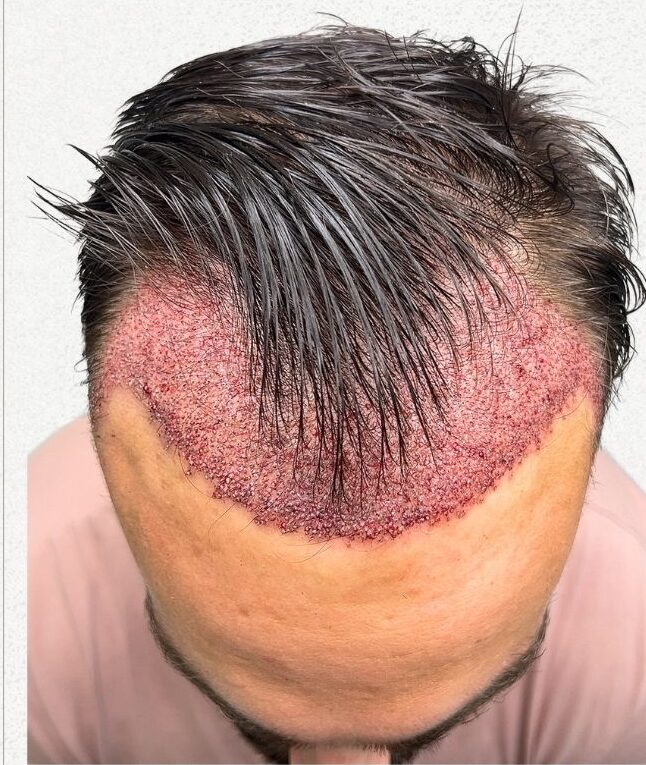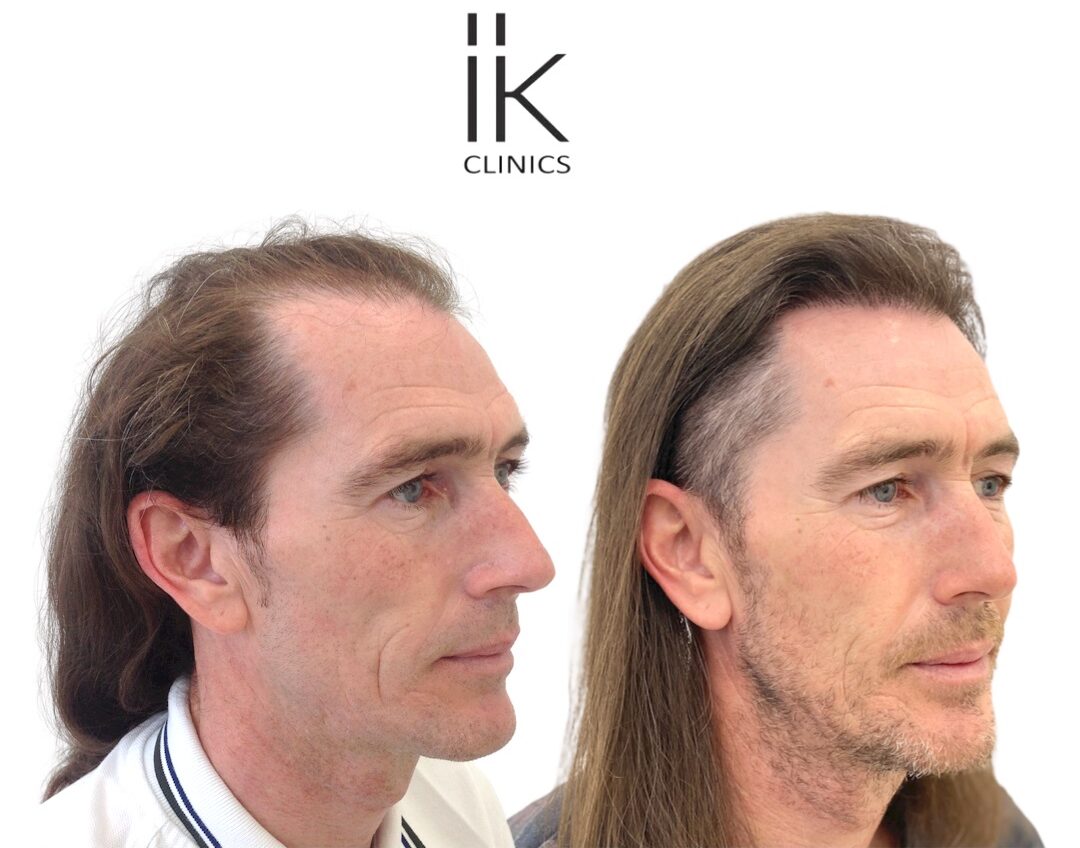To ensure the best possible results, it’s essential to follow a proper hair care routine that promotes healing and helps new hair grow strong, healthy, and vibrant.
Whether you have just had your transplant or are considering one, this guide will help you navigate the post-transplant care process.
The First Few Days: Taking Extra Care
The first few days after a hair transplant are crucial for healing. Your scalp will be sensitive, and the newly implanted follicles need time to settle.
During this period, it is important to handle your scalp with extreme care. Avoid touching or rubbing the area, as the grafts are delicate and can be dislodged. Your clinic will provide specific post-procedure care guidelines, and following these instructions closely is vital.
Washing your hair should be avoided for at least 48 hours. Once you do begin cleansing, use lukewarm water and a mild, sulphate-free shampoo to avoid irritation. Excessive sweating can also slow down the healing process, so it is best to avoid strenuous workouts, saunas, and any activity that causes excessive perspiration for at least a week.
The First Two Weeks: Gentle Cleansing and Hydration
As your scalp begins to heal over the first two weeks, you can gradually introduce a gentle cleansing routine.
Using a mild shampoo, such as a baby shampoo or a medicated option recommended by your doctor, will help keep your scalp clean without causing damage. When drying your hair, pat it gently with a soft towel rather than rubbing to avoid disturbing the new grafts.
Hydration is another key factor in recovery. Drinking plenty of water and maintaining a balanced diet rich in essential vitamins and minerals will support healthy hair growth. Many people experience itchiness during this stage, but it’s important to resist the urge to scratch. If the itching becomes unbearable, consult your doctor for a safe solution.

The First Month: Allowing Growth and Recovery
By the first month, your scalp should be well on its way to healing. At this stage, some shedding is normal, which can be alarming, but it is a natural part of the process.
The newly transplanted hair follicles will enter a resting phase before they start growing again in a few months. During this period, it is best to avoid heavy styling, excessive heat from hair dryers or straighteners, and chemical treatments such as colouring or perming.
Keeping your scalp clean and moisturised is beneficial, but using lightweight, non-greasy products is advised. Sun exposure can also be harmful to a sensitive scalp, so if you need to be outside for extended periods, wearing a loose-fitting hat or applying a doctor-recommended sunscreen is a good idea.
Long-Term Care: Maintaining Healthy Hair
Long-term care is essential for maintaining the results of your hair transplant.
A well-balanced diet that includes protein, iron, and vitamins such as Biotin and Vitamin D will help keep your hair strong and healthy. Foods like eggs, fish, nuts, and leafy greens are excellent additions to your meals.
Using gentle hair products is also important, as harsh chemicals can weaken the hair and cause unnecessary damage. Instead, opt for shampoos and conditioners that are free from sulphates and parabens. Regular scalp massages can stimulate blood circulation and promote healthier hair growth.
Managing stress levels is another important aspect of long-term hair health. High levels of stress can contribute to hair thinning, so incorporating relaxation techniques such as meditation, yoga, or regular exercise can be beneficial.
Keeping in touch with your hair transplant clinic for follow-up visits and professional advice will also ensure you are on the right track.

Final Thoughts
A hair transplant is an investment in your confidence, and taking proper care of your scalp and new hair can make a significant difference in the final results.
By following a gentle yet effective routine, being patient, and nourishing your hair from the inside out, you will set yourself up for strong, healthy, and natural-looking hair growth. Good hair care is a long-term commitment, and consistency is key.
If you ever have concerns or are unsure about your routine, don’t hesitate to reach out to your hair transplant specialist. Your journey to great hair has just begun, and with the right care, you’ll soon be enjoying the full benefits of your transplant.
About IK Clinics
We don’t just specialise in FUE, we also offer other hair restoration treatments, such as Stem Cell Therapy and Plasma Therapy (PRP). Additionally, we also provide a range of anti-aging treatments to help you achieve that ‘I feel good’ feeling.
Get in touch to find out more and book your consultation.


